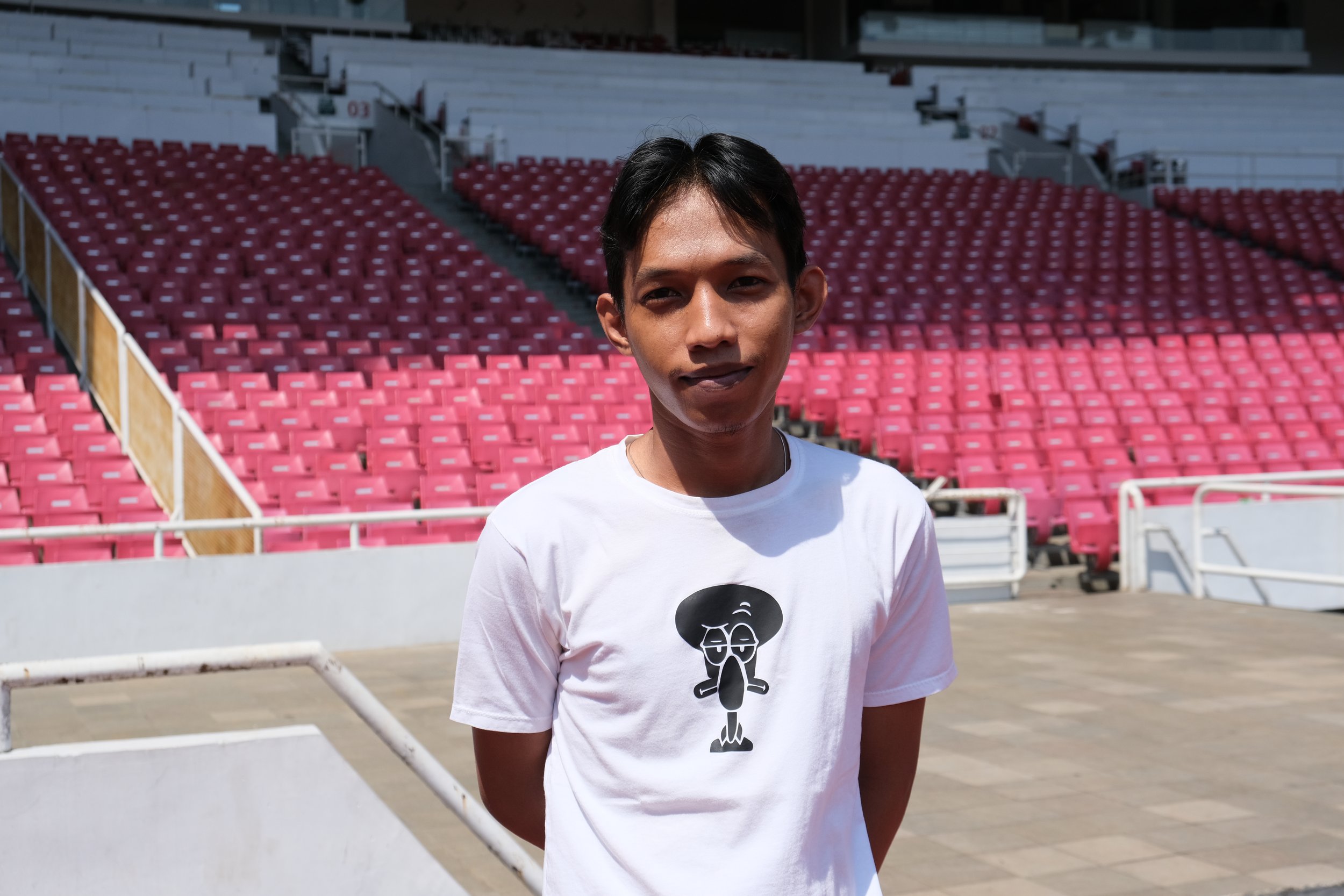Don't park the bus; Indonesia
Words Ted Delahoy
Indonesia is the fourth most populated country on earth and therefore it is probably fair to say, something of an underachiever in producing footballing talent.
However, it feels like the Indonesian football league, Liga 1, is starting to get some notice on the world stage. Players such as Peter Odemwinge, Carlton Cole and the legendary Michael Essien chose to move to the league, albeit in the twilight of their respective careers.
Unfortunately due to events on 1 October 2022, Essien and co won’t be what springs to mind when talking about Indonesian football.
After the final whistle blew in a game between rivals Arema and Persebaya Surabaya, trouble broke out. Persebaya won the game 3-2, their first ever win away at Arema and some fans entered the pitch. The police responded by firing tear gas into the stands causing mass panic. This led to fans rushing to the barriers creating huge bottlenecks and leading to a deadly crush. It is reported 135 people lost their lives and nearly 600 were injured in a truly horrific tragedy.
The Kanjuruhan stadium disaster is the second deadliest in football history and it’s clear that repercussions are needed.
Several of the police and match organisers have lost their jobs and investigations are still being carried out. The league was suspended and the Kanjuruhan Stadium will be knocked down and rebuilt according to Fifa regulations. The President Joko Widodo has promised an “evaluation of improvement of security procedures" but it feels like this has all come too late.
I spent my time in Jakarta trying to find out how the league can restart and to see what is being done in light of the disaster. Jakarta is an enormous sprawling city that never seems to end. In the centre of it all is the Gelora Bung Karno stadium, the home of Liga 1 side Persija Jakarta.
Everything seems normal walking round the ground, tranquil even. There is a river with children feeding the fish, prayers ringing out from the local Mosque and lots of joggers out for a Saturday morning run.
Beneath the surface you get reminders about what happened.
There are security guards and members of the army everywhere, more than you’d normally see on a matchday in England and there wasn’t even a game being played. Furthermore, there was a ‘Tactical Wall’ display showing an overview of the stadium including where exits are located and where the different police units would operate.
The staff on one of the gates informed me that runners can pay to go inside and use the running track and I could do that if I wanted to see the inside of the ground. I’m usually against running tracks at football stadiums but at least it was getting used as who knows when a full crowd will be watching a match here again.
Gelora Bung Karno is a great stadium, very modern with a perfect bright green pitch. There were a lot of workers clearly putting effort into maintaining the grass which can’t be easy in the Jakarta sun.
As I wandered round the track a man on a segway whizzed over to me and introduced himself as Agus the stadium announcer. He had come over to make sure I was OK and as we chatted and he told me Persija currently have to play far outside of the city. Agus suggested this was so the government can be seen to be taking action, when really all it achieves is punishing the fans.
Everyone I encountered during my time exploring football in Indonesia was very nice but you could tell there was a sense of shame. It made me feel bad for all those football fans and people like Agus who haven’t done anything wrong. It’s a big deal for there to be no football being played in the capital.
Agus also told me Persija Jakarta were planning to move to the Jakarta International Stadium across the city from the start of next season, so I headed there next. Similarly to the GBK stadium, it was very modern and looked like a great home for any football team. The security staff were also extremely friendly and more than happy to talk football. I asked them which teams they supported; Liverpool, PSG and Manchester United.
Football is important to people in Indonesia and I hope the domestic league can rebuild. Liga 1 restarted on 5 December, but behind closed doors and this is still the case. When fans are eventually allowed back it may take time to rebuild trust that something like this won’t ever happen again.
I left Jakarta with as many questions as answers. I think only time will tell how the league can begin to grow again.
What I hope for the future of Indonesian football is that serious lessons are learnt and that the people who lost their lives aren’t forgotten.











